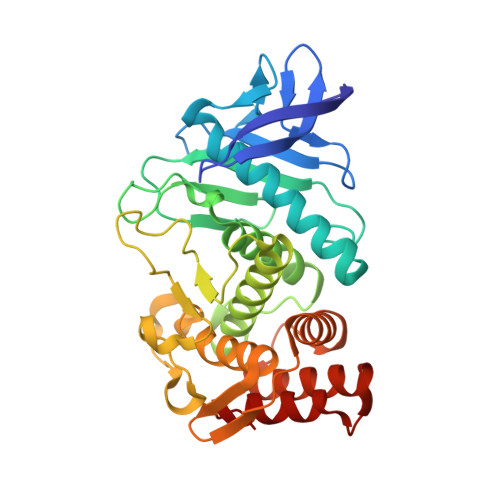On the routine use of soft X-rays in macromolecular crystallography. Part IV. Efficient determination of anomalous substructures in biomacromolecules using longer X-ray wavelengths.
Mueller-Dieckmann, C., Panjikar, S., Schmidt, A., Mueller, S., Kuper, J., Geerlof, A., Wilmanns, M., Singh, R.K., Tucker, P.A., Weiss, M.S.(2007) Acta Crystallogr D Biol Crystallogr 63: 366-380
- PubMed: 17327674
- DOI: https://doi.org/10.1107/S0907444906055624
- Primary Citation of Related Structures:
2G4H, 2G4I, 2G4J, 2G4K, 2G4L, 2G4M, 2G4N, 2G4O, 2G4P, 2G4Q, 2G4R, 2G4S, 2G4T, 2G4U, 2G4V, 2G4W, 2G4X, 2G4Y, 2G4Z, 2G51, 2G52, 2G55, 2ILL - PubMed Abstract:
23 different crystal forms of 19 different biological macromolecules were examined with respect to their anomalously scattering substructures using diffraction data collected at a wavelength of 2.0 A (6.2 keV). In more than 90% of the cases the substructure was found to contain more than just the protein S atoms. The data presented suggest that chloride, sulfate, phosphate or metal ions from the buffer or even from the purification protocol are frequently bound to the protein molecule and that these ions are often overlooked, especially if they are not bound at full occupancy. Thus, in order to fully describe the macromolecule under study, it seems desirable that any structure determination be complemented with a long-wavelength data set.
- EMBL Hamburg Outstation, c/o DESY, Notkestrasse 85, D-22603 Hamburg, Germany.
Organizational Affiliation:




















